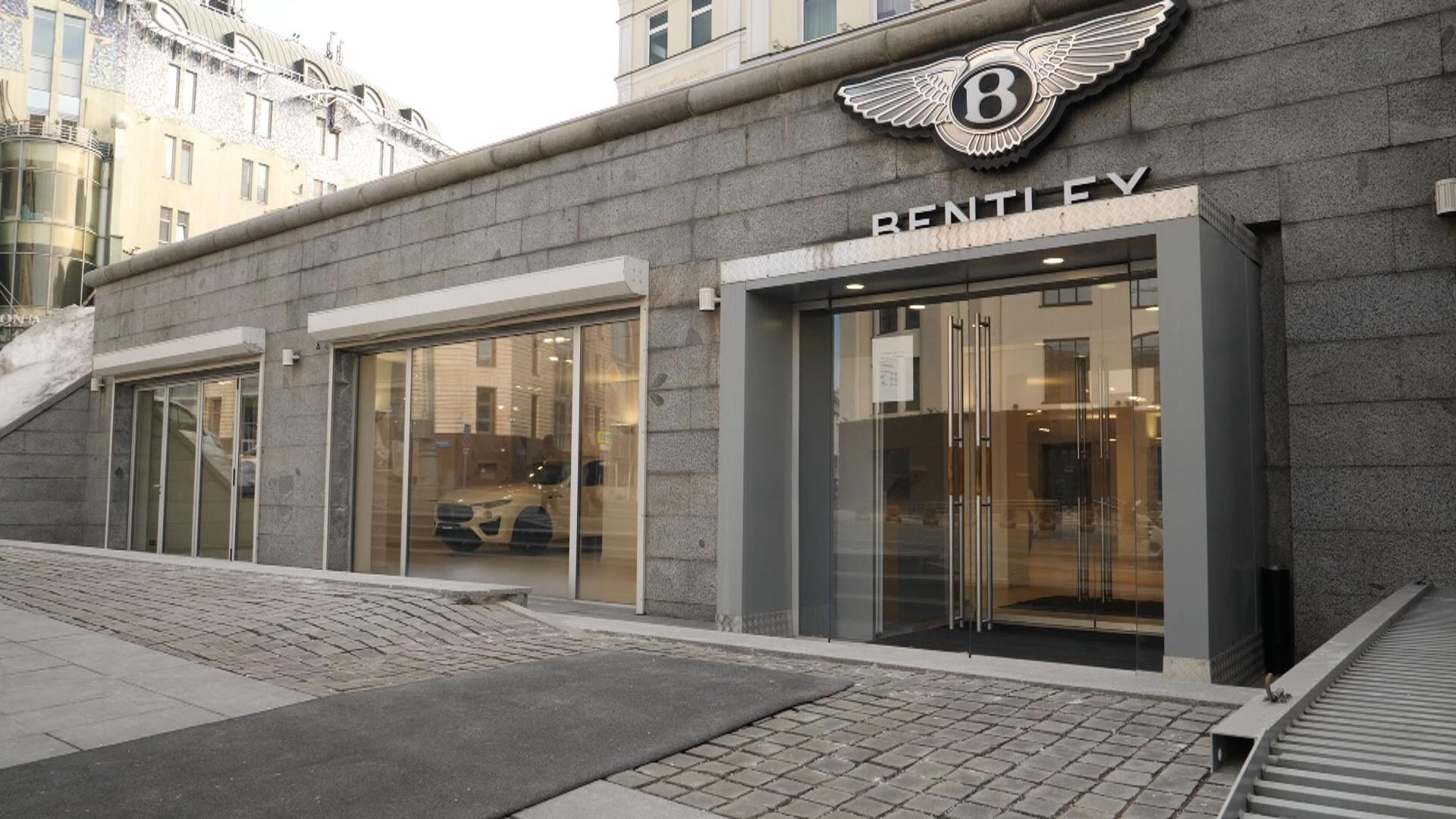The extraordinary, unprecedented and largely unexplained flows of millions of pounds of British luxury cars into states neighbouring Russia continued in February, according to new official data.
Some £26m worth of British cars were exported to Azerbaijan in February, according to data from HM Revenue & Customs.
The numbers show that in the latest quarter this former Soviet state with developing economy status was the 17th biggest destination for UK cars, bigger than long-established export markets such as Ireland, Portugal and Qatar.
Azerbaijan’s ascent has coincided almost to the month with the imposition of sanctions on the export of cars to Russia.
British cars are banned from being sent into Russia, both as “dual use” goods, which could be repurposed as weapons, and, for any cars over the value of £42,000, under specific luxury goods restrictions.
However, even as UK car exports to Russia plummeted to zero, they have risen sharply to states neighbouring Russia, including Kazakhstan, Kyrgyzstan, Georgia and, most notably of all, Azerbaijan.
Keep up with all the latest news from the UK and around the world by following Sky News
While it is impossible to prove where those shipments end up eventually, there is plentiful anecdotal evidence that these countries are being used as conduits to smuggle banned goods to Russia.
Nagorno-Karabakh: Azerbaijan raises flag over former breakaway region
Nagorno-Karabakh: Most people have left enclave for Armenia as Azerbaijan retakes control
More than three quarters of Nagorno-Karabakh’s population flees to Armenia
The latest HMRC data shows that in the three months to February, the average value of the cars being sent to Azerbaijan was over £115,000, making this small, relatively poor economy one of the most high-value luxury car markets in the world – alongside Switzerland, Luxembourg and Saudi Arabia.
The total value of UK car exports to Azerbaijan in the two years since the invasion of Ukraine and the imposition of sanctions is now £523m. That compares to £58m in the immediately preceding two years.
Britain’s motor lobby group, the Society of Motor Manufacturers and Traders (SMMT), has insisted that this 800% increase can be explained by domestic factors in the Azerbaijani economy – and is not connected with Russian sanctions.
Please use Chrome browser for a more accessible video player
Read more:
UK-made cars are getting into Russia despite sanctions
2,000% increase in car sales to Azerbaijan ‘has nothing to do with Russia’
An SMMT spokesperson said: “UK carmakers comply with all trade sanctions and would condemn any party putting that commitment at risk. Car exports from UK factories to Azerbaijan have grown since 2019 due to multiple factors, including significant new model launches, pent-up demand and a growing domestic appetite for UK luxury cars. Indeed, UN data shows that just two cars of any origin have been officially exported from Azerbaijan to Russia this year.
“We have never ruled out the possibility that third parties might exploit any vulnerabilities in the sanction regime, and manufacturers do everything in their power to prevent this. Any UK-built vehicle on sale in Russia found its way there without their authorisation. This is a fast-moving global issue covering products from multiple sectors in many countries deploying sanctions, and tackling any vulnerabilities requires a coordinated, global response.”
However, while United Nations (UN) data suggests the quantity of cars being officially exported to Russia remains low, that same evidence suggests that, far from behaving like a normal car market, Azerbaijan does seem to be funnelling cars off elsewhere into Central Asia.
Be the first to get Breaking News
Install the Sky News app for free
Contrary to the SMMT’s analysis, which suggests the car exports can be explained by domestic factors, car exports from Azerbaijan have risen by 4,800% since the invasion of Russia, with most of the cars destined (according to UN data) for Kazakhstan, Kyrgyzstan, Georgia and the United Arab Emirates.
According to UK government sources, these states are understood to be widely used as conduits for goods into Russia.
Cars are not the only British goods to have seen a large spike in exports to Central Asia and the Caucasus – so too have components and machinery used to make weapons. In a visit to Kyrgyzstan this week, Foreign Secretary Lord Cameron admitted that Russia is using central Asian countries to sidestep sanctions and build its “war machine”.











